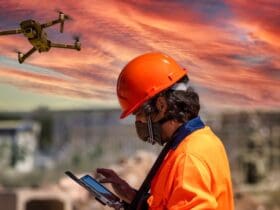Businesses in Wales are being advised to prepare for the new requirements under the Welsh Government’s new Workplace Recycling Wales laws, which come into force in April 2024.
Recycling experts discussed the upcoming changes in one of a series of roundtable discussions being held online in the run-up to the Green Economy Conference and Exhibition, which will take place at Swansea Arena on November 22.
Explaining the laws, Andy Rees from the Welsh Government said they will impact all non-domestic premises in Wales, requiring them to separate out their waste recyclables. Unsold items such as electrical equipment and textiles also have to be separated out so that they do not go to incineration or landfill. All wood waste will also be banned from landfill.
He added that as circular economy thinking increases, many businesses need to reconsider what they make and sell, and the lifecycle of those products.
“Recycling is good, but there’s a lot of other things we need to do to try and reduce the amount of resources that we use,” he said. “The planet only has a finite amount of resources, so we need to be a lot more clever about how we design products, goods and services and where we derive our happiness from: is it through buying lots of stuff, or is it through doing something else, for example enjoying services?
“Businesses need to really think about the sort of product that they’re selling – whether they can lease it, hire it, or rent it. It’s important that we keep products and materials in productive use for as long as possible.”
Sean Gallagher, managing director at Carmarthen-based Cwm Environmental, welcomed the incoming laws.
“We’re well underway on gearing up for the new collections,” he said. We’re speaking to lots of businesses; advising customers is key.”
Andrew Wright, commercial director at Griffiths Group, described the new laws as “a positive change”, adding that there is still time for unprepared businesses to get ready for them.
“Although the changes are big, in the cases of what the individual businesses are going to have to do, they’re not that significant,” he said. “It’s just a case of pre-planning, and getting the right waste contractors in place to ensure that they’re compliant for you as a customer. Over time this is going to make a big difference to the Welsh circular economy.”
He also highlighted the need to improve the waste recycling infrastructure in Wales, welcoming the news that Jayplas, a leader in plastics recycling, is to establish a facility at Gorseinon processing at least 100,000 tonnes of flexible and rigid plastics a year, doubling Wales’ plastics recycling capacity.
“It’s a hugely welcome addition to the Welsh infrastructure,” he said. “It’s something that’s desperately needed. When you look at the waste streams which businesses are now going to have to segregate, I think a large proportion of it will be reused or be able to be reprocessed in Wales. Continual investment is needed in order to reuse these materials in Wales, and particularly to reprocess them.”
The conference aims to bring together businesses and organisations to discuss the growth of the green economy in South West Wales. It is organised by 4theRegion, a membership alliance working to bring about positive change in the region. 4theRegion also organises the Swansea Conference, which took place at Swansea Arena earlier this year. The Green Economy Conference and Exhibition will follow a similar format, with panel discussions, networking opportunities and an exhibition hall.
The roundtables held in the run-up to the conference aim to begin key discussions that will continue at the conference. The Materials Roundtable addressed the potential impact of the Workplace Recycling laws, featuring key players from the sector: Sean Gallagher; Andy Rees, head of waste strategy for the Welsh Government; Andrew Wright, commercial director at Griffiths Group; Gareth Thomas, head of marketing at Griffiths Group; Owain Griffiths, director at Circular Resource Specialists; and Diane Thomas, waste strategy and policy officer for Carmarthenshire Council.
Dawn Lyle, chair of 4theRegion, added:
“It’s clear that the Welsh Government is not shying away from making some difficult decisions that prioritise the well-being of future generations, which is of course what this is all about. I hope that discussions such as this one will inspire people to consider how all of us can encourage more circular economy thinking across our organisations and across our communities.
“The community sector is also leading the way with lots of plastic-free initiatives and small community-based innovations around circular economy thinking and community-based reuse, repairing and recycling. It’s an exciting sector with lots happening, so come along to the Green Economy Conference on November 22 to talk about all this and more. We’ll be joined by CEIC, the Circular Economies Innovation Communities project and can expect lots of interesting and inspiring discussions.”
The next pre-conference roundtable is the Food Roundtable on November 7.








Leave a Reply
View Comments